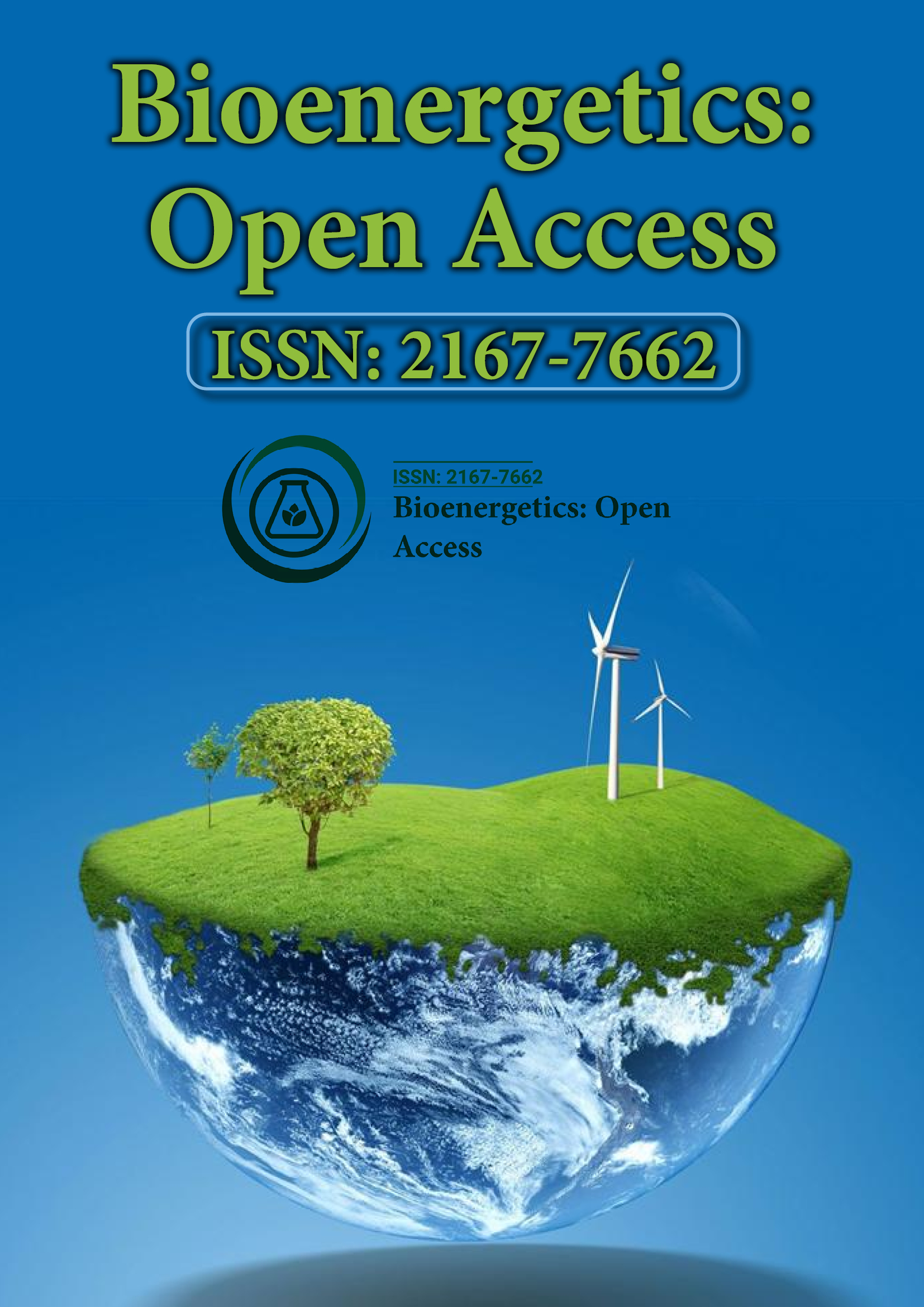Indexed In
- Open J Gate
- Genamics JournalSeek
- Academic Keys
- ResearchBible
- RefSeek
- Directory of Research Journal Indexing (DRJI)
- Hamdard University
- EBSCO A-Z
- OCLC- WorldCat
- Scholarsteer
- Publons
- Euro Pub
- Google Scholar
Useful Links
Share This Page
Journal Flyer

Open Access Journals
- Agri and Aquaculture
- Biochemistry
- Bioinformatics & Systems Biology
- Business & Management
- Chemistry
- Clinical Sciences
- Engineering
- Food & Nutrition
- General Science
- Genetics & Molecular Biology
- Immunology & Microbiology
- Medical Sciences
- Neuroscience & Psychology
- Nursing & Health Care
- Pharmaceutical Sciences
Perspective - (2024) Volume 12, Issue 4
Impact of Tebuconazole on Cardiac Energy Metabolism and Mitochondrial Dysfunction
Natalie Evans*Received: 29-Nov-2024, Manuscript No. BEG-24-28114; Editor assigned: 02-Dec-2024, Pre QC No. BEG-24-28114 (PQ); Reviewed: 16-Dec-2024, QC No. BEG-24-28114; Revised: 23-Dec-2024, Manuscript No. BEG-24-28114 (R); Published: 30-Dec-2024, DOI: 10.35248/2167-7662.24.12.285
Description
The growing awareness of environmental pollutants and their impact on human health has drawn attention to the effects of fungicides like tebuconazole, which is widely used in agriculture. Recent studies have revealed how tebuconazole exposure disrupts cardiac energy metabolism, contributing to mitochondrial dysfunction and energy substrate imbalances in the heart. These disruptions are particularly concerning because they can weaken the heart's ability to efficiently generate ATP, leading to significant metabolic and functional impairments. This perspective explains the mechanisms through which tebuconazole mediates cardiac energy metabolism disorders, the resulting mitochondrial damage and the significant consequences for cardiovascular health.
Cardiac metabolism is uniquely customized to meet the high energy demands of the heart, a muscle that continuously works to pump blood throughout the body. The heart depends on a variety of energy substrates, primarily fatty acids, glucose and lactate, to maintain its function. These substrates are oxidized to generate ATP through mitochondrial oxidative phosphorylation, the primary pathway for energy production in cardiac cells. When exposed to external stressors like tebuconazole, the balance of these metabolic processes can be significantly disrupted, leading to metabolic dysfunction.
Tebuconazole, a widely used systemic fungicide, has been identified as a potential environmental toxin with cardiovascular toxicity. Studies indicate that exposure to tebuconazole can result in an imbalance in the heart’s energy substrates, particularly by impairing fatty acid oxidation and disrupting glucose metabolism. The heart, under normal conditions, primarily oxidizes fatty acids for ATP production, with glucose playing a complementary role during periods of high energy demand. When tebuconazole is introduced, it can interfere with these processes, leading to an energy deficit and forcing the heart to depend on less efficient pathways for ATP production. This metabolic change exacerbates the energy shortage and compromises the contractile function of the heart.
A fundamental factor in this energy metabolism disorder is mitochondrial dysfunction. Mitochondria are the energy generators of the cell and their combination is essential for sustaining cellular functions, especially in energy-demanding organs like the heart. Tebuconazole exposure has been shown to cause mitochondrial damage by inducing oxidative stress, disrupting mitochondrial membrane potential and impairing mitochondrial respiration. The mitochondria's ability to generate ATP is compromised, leading to a decrease in energy production. This mitochondrial damage is a central factor in the development of cardiac dysfunction under tebuconazole exposure, as the heart becomes increasingly reliant on suboptimal pathways for energy production.
The imbalance in energy substrate utilization due to tebuconazole exposure also has significant implications for cardiac cell signaling and function. The heart’s ability to respond to stress and adapt to changes in energy demand is tightly regulated by metabolic signaling pathways. Disruptions in the balance of fatty acids and glucose metabolism can impair these signaling pathways, reducing the heart’s ability to adapt to changing conditions. For example, compromised fatty acid oxidation can limit the production of a main intermediates involved in cardiac cell signaling, ultimately leading to contractile dysfunction and arrhythmias.
The impact of tebuconazole on cardiac energy metabolism is also linked to broader cardiovascular health concerns. Given the central role of mitochondria in maintaining cellular function, any disruption to mitochondrial health can have far-reaching effects on the entire cardiovascular system. Studies have shown that mitochondrial dysfunction can promote the development of heart failure, arrhythmias and other cardiovascular diseases. Therefore, understanding the mechanisms through which tebuconazole disrupts mitochondrial function and energy metabolism is critical for assessing its long-term effects on heart health and for identifying potential therapeutic targets to mitigate these effects.
One of the significant challenges in addressing the effects of tebuconazole exposure on cardiac metabolism is the complexity of the interactions between environmental pollutants and biological systems. The exposure levels required to induce significant metabolic disruption may vary depending on individual susceptibility, genetic factors and pre-existing health conditions. Furthermore, the long-term effects of low-level exposure, which might not cause immediate symptoms but could lead to chronic metabolic changes over time, require careful investigation.
In conclusion, the exposure to tebuconazole presents a serious threat to cardiac energy metabolism, leading to mitochondrial damage and an imbalance in energy substrate utilization. These disruptions contribute to the development of cardiac dysfunction and increase the risk of long-term cardiovascular diseases. Understanding the fundamental mechanisms through which tebuconazole induces these changes is essential for developing effective therapeutic strategies to protect heart health. As research into the environmental and toxicological effects of pesticides and other pollutants continues, it will be essential to consider the significant consequences for public health and cardiovascular disease prevention.
Citation: Evans N (2024). Impact of Tebuconazole on Cardiac Energy Metabolism and Mitochondrial Dysfunction. J Bio Energetics. 12:285.
Copyright: © 2024 Evans N. This is an open access article distributed under the terms of the Creative Commons Attribution License, which permits unrestricted use, distribution, and reproduction in any medium, provided the original author and source are credited.
